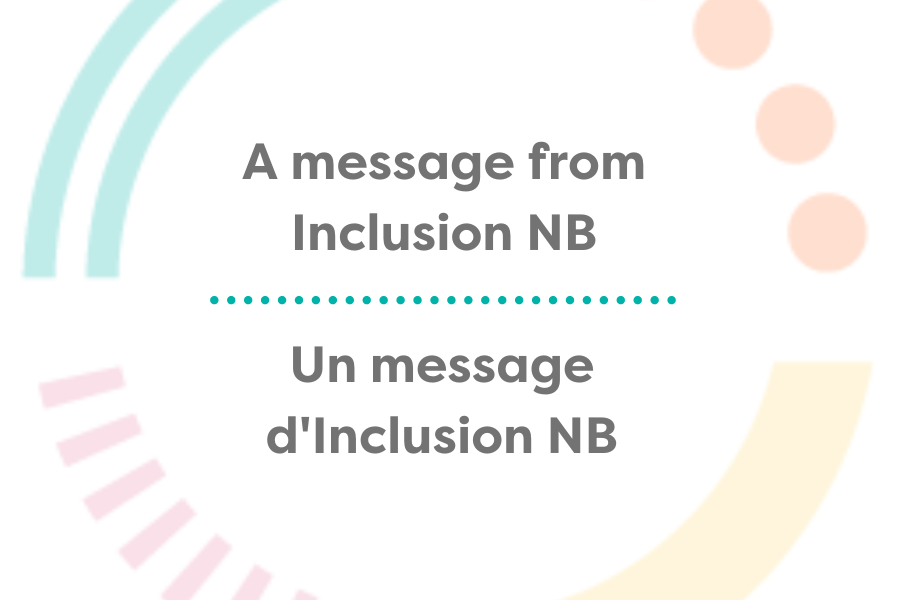
In Response to the New Brunswick Seniors’ Advocate, “What We All Want” Report on long term care
Today, the New Brunswick Seniors’ Advocate released a report with an urgent call for change regarding our province’s long term care system. We appreciate the inclusion of perspectives of individuals with a disability in the report and applaud the call for “a clear definition of person-centered care” consistent with the United Nations Convention on the Rights of Persons with Disabilities.
This convention is a cornerstone of our work at Inclusion NB.
Our province has the second highest rates of disability in the country – at 35.3% – and approximately 22,000 of our citizens have an intellectual or developmental disability.
It may be surprising to learn that of those 22,000, many under the age of 65 are living in long-term care facilities across our province.
This is unacceptable. These are not seniors; they are working-age adults.
These New Brunswickers do not require ‘care’ in the way we have typically defined it: medically focused. They require support, and the choice to live the life they want.
From the report:
“Currently in New Brunswick there are 1,863 adults with disabilities living in special care homes. How many of the 1,863 adults with a disability are… trapped in a system that over supports what their needs are, while limiting connection to their community?”
This “housing” arrangement is one of convenience. It is the very opposite of a person-centered approach.
Connection to community creates an inclusive, full life. This isn’t possible in a congregate care facility. All New Brunswickers want and deserve to live in the community of their choice, in housing of their choice. This leads to opportunities to link to employment, volunteering and social inclusion.
The Advocate also makes this recommendation:
By January 2025, the Department of Social Development should release a plan to transition all adults with a disability who are under the age of 65 out of special care home or LTC placement and into small, supported living options (ideally 2-3 individuals per housing option).
While we enthusiastically support (and have been calling for) the creation of this plan, we need to look at the model suggested here. As stated in the report, what is needed for New Brunswickers with a disability is one that supports people:
“To live in inclusive housing options which provide for their social, intellectual, and emotional inclusion in the community.”
The ideal living situation, for anyone, is having a home of your own and choosing where and who you live with. This is where New Brunswick adults with intellectual and developmental disabilities can have support in their own space. We can’t simply create additional, smaller special care homes.
Inclusive housing is housing that is safe, affordable, physically accessible, close to activities, amenities, and services. It is also dispersed within communities and neighbourhoods through mixed-income developments and intentional community planning.
The report admirably shines a light on halting the continuation of placing adults with disabilities in special care and nursing homes designed for seniors. Moving toward an inclusive, dispersed, person-centered model is the next step.
This report has the opportunity to create important change.
Jake Reid
Executive Director
